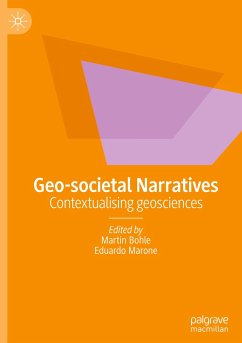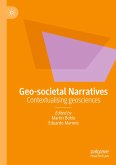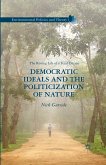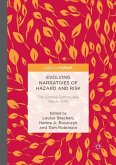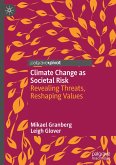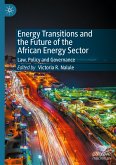This book provides an accessible overview of the societal relevance of contemporary geosciences. Engaging various disciplines from humanities and social sciences, the book offers philosophical, cultural, economic, and geoscientific insights into how to contextualise geosciences in the node of Culture and Nature.
The authors introduce two perspectives of societal geosciences, both informed by the lens of geoethics. Throughout the text core themes are explored; human agency, the integrity of place, geo-centricity, economy and climate justice, subjective sense-making and spirituality, nationalism, participatory empowerment and leadership in times of anthropogenic global change. The book concludes with a discussion on culture, education, or philosophy of science as aggregating concepts of seemingly disjunct narratives.
The diverse intellectual homes of the authors offer a rich resource in terms of how they perceive human agency within the Earth system. Two geoscientific perspectives and fourteen narratives from various cultural, social and political viewpoints contextualise geosciences in the World(s) of the Anthropocene.
The authors introduce two perspectives of societal geosciences, both informed by the lens of geoethics. Throughout the text core themes are explored; human agency, the integrity of place, geo-centricity, economy and climate justice, subjective sense-making and spirituality, nationalism, participatory empowerment and leadership in times of anthropogenic global change. The book concludes with a discussion on culture, education, or philosophy of science as aggregating concepts of seemingly disjunct narratives.
The diverse intellectual homes of the authors offer a rich resource in terms of how they perceive human agency within the Earth system. Two geoscientific perspectives and fourteen narratives from various cultural, social and political viewpoints contextualise geosciences in the World(s) of the Anthropocene.

